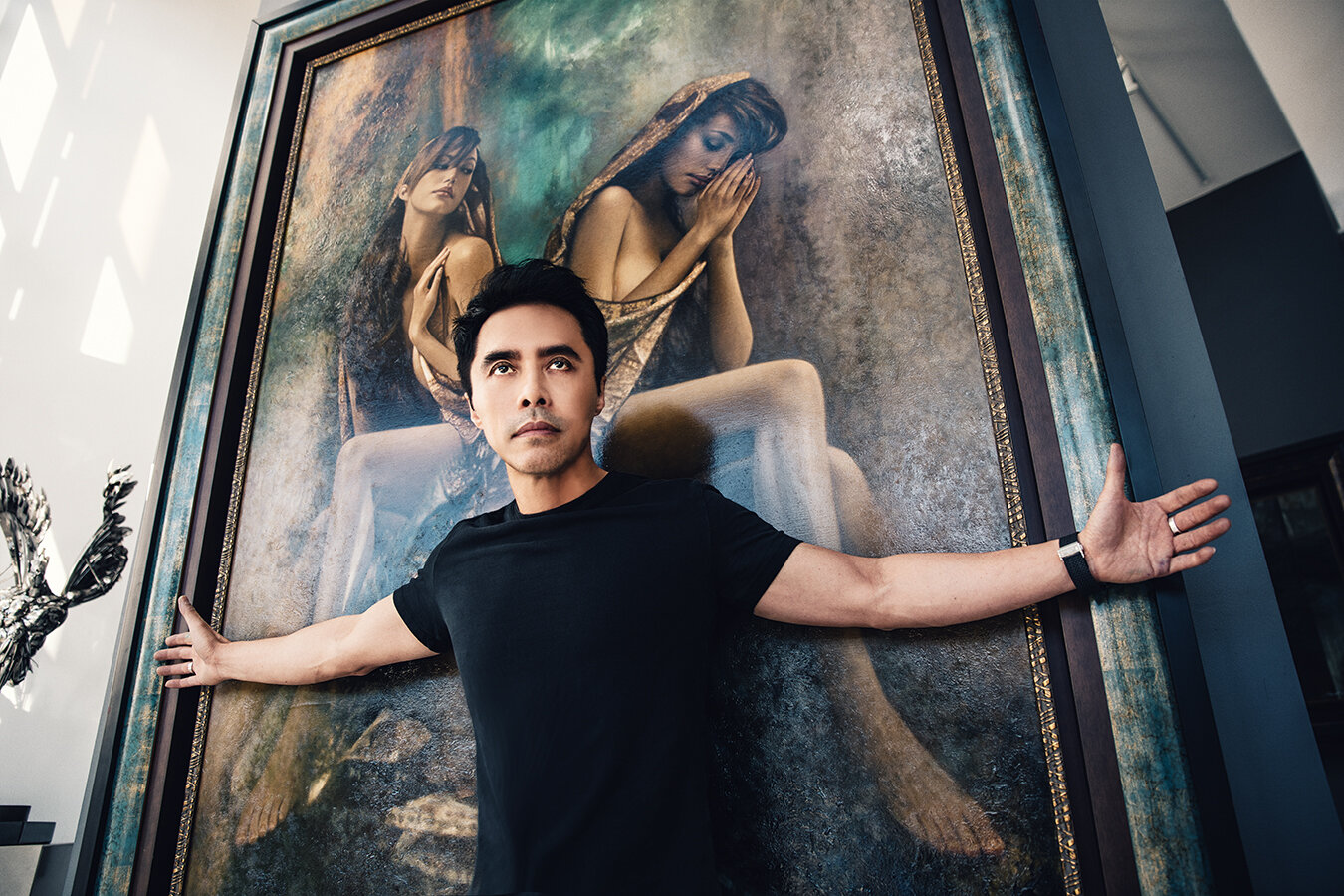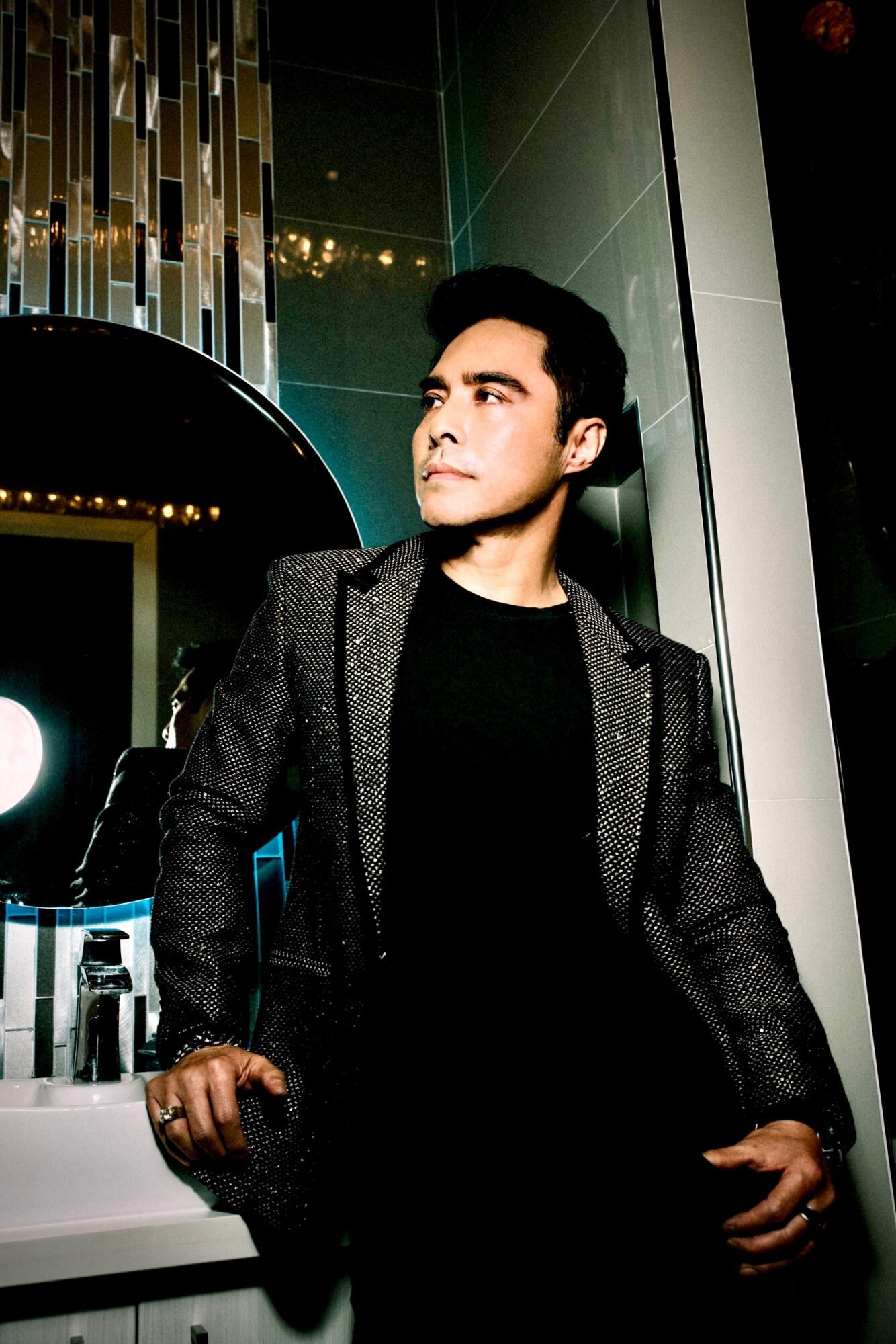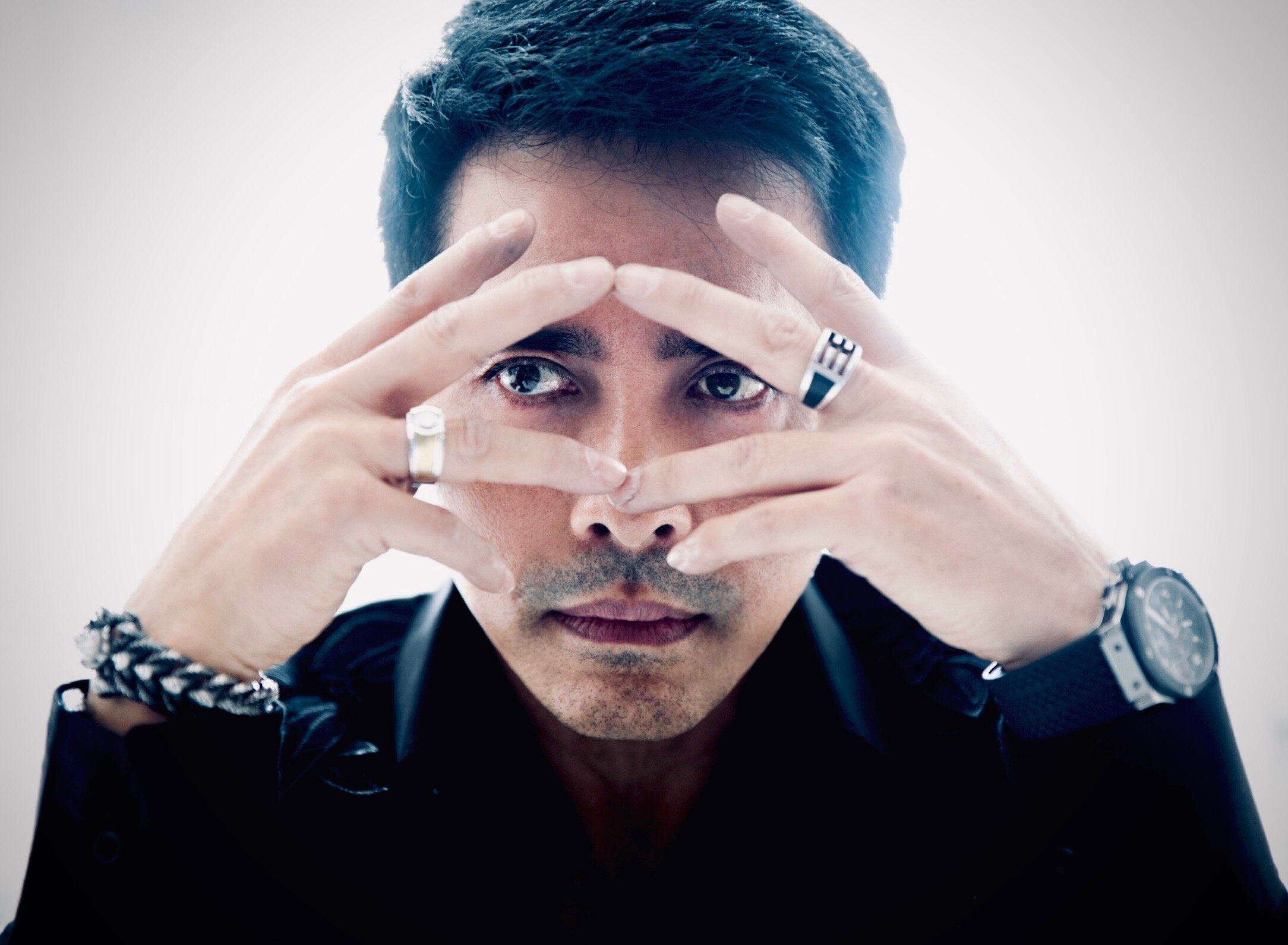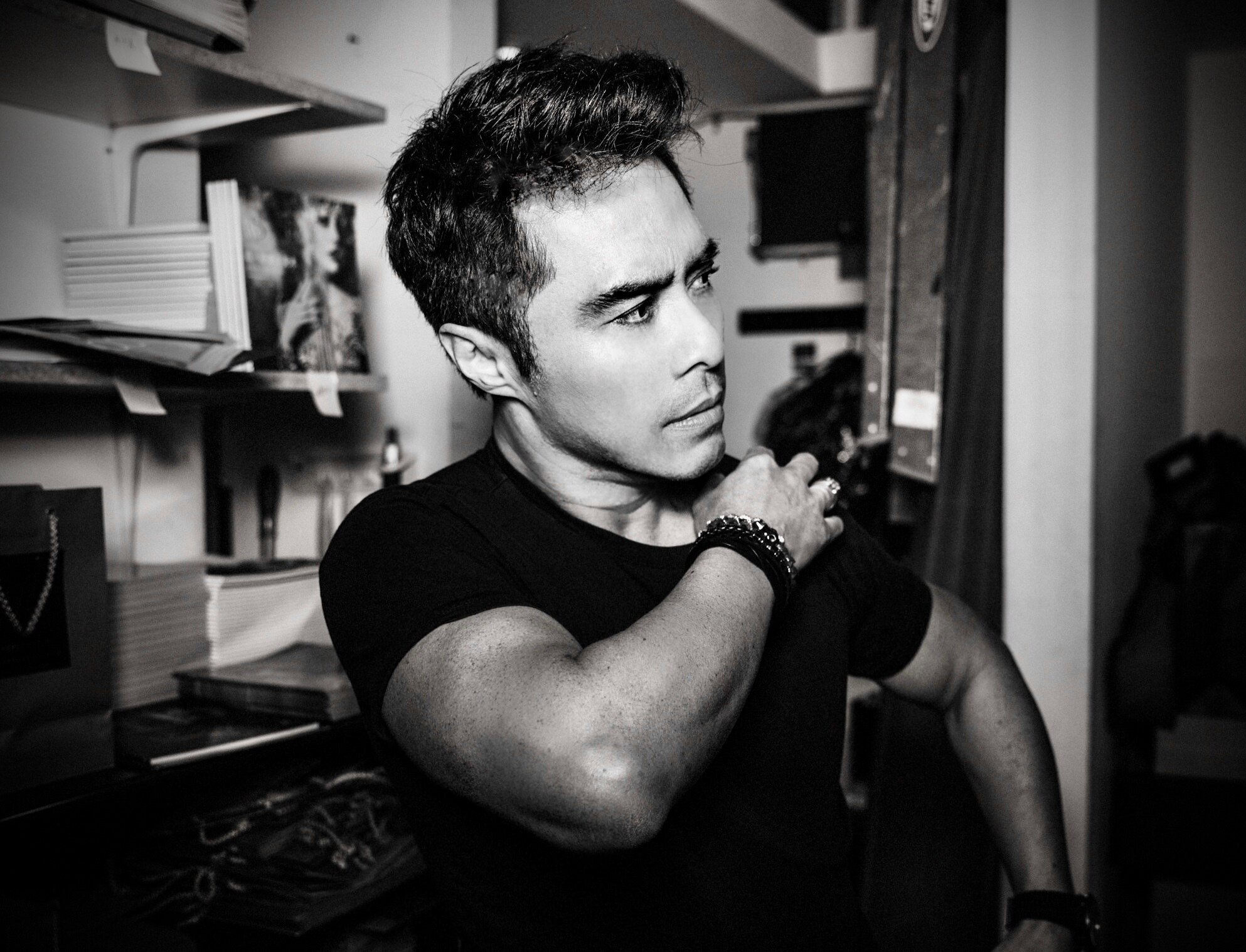Voyage LA: Meet Sir Daniel Winn of Winn Slavin Fine Art Beverly Hills
[as originally published on voyagela.com]
Today we’d like to introduce you to Sir Daniel Winn.
Sir Daniel, let’s start with your story. We’d love to hear how you got started and how the journey has been so far.
I went to medical school to pursue my career as a reconstructive surgeon, but when I graduated I decided to follow my passion in the arts as an artist. So I decided to open a small gallery and began sculpting and painting. It was very successful, and because of its success, my collector’s client wanted to partner with me to open an agency that represented artists. The idea was to help them become blue-chip museum artists, to help make them famous so that their value would increase over time. But unbeknownst to me, it took a lot of time. So I had to sacrifice my dream of becoming an artist to focus on the agency and artists that I curated in order to make them popular worldwide.
It wasn’t until about three years ago that I decided to go back to painting and sculpting myself. When I gave up my passion as an artist to curate, it was somewhat bittersweet. But I think it was necessary in the sense that I learned a lot during those 20 years as a curator – meeting with museum directors, international art fairs and collectors. Basically networking in the art industry allowed me to understand the industry a lot more. So when I came back to art myself as an artist, it is a lot easier for me to connect.
So for me, to have seen the success I have now as an artist only three years after I started painting again is almost unheard of. Most artists would dream to be where I am. It would normally take a lifetime. But because of my connections in the industry, it was much faster. Additionally, I felt that my art was very well received. So being a curator was a catalyst, and I’m very blessed to have learned a lot not just from the industry but also from the artists that I helped.
Great, so let’s dig a little deeper into the story – has it been an easy path overall and if not, what were the challenges you’ve had to overcome?
I think in any endeavor for anyone that wants to be successful, there will always be obstacles. One obstacle was trying to find out how the industry worked and what makes art and an artist successful because they don’t teach that in school, particularly the business side of it. And in this particular industry, it’s actually more the business than you might think. I think the obstacle was to try to understand why certain art is great or not great, technique-wise or with symbolism. But also, like it is with any commodity or industry, you have to factor in marketing too – that’s part of the business side. So to me that was a struggle. I had always thought if you’re a great artist, if you’re amazing and have great credentials, then that was it. But I found that was not the case. It also has to do a lot with marketing and a lot of exposure and a lot of networking to get to that point of success. So as a curator, to get my artists to where they are now, there were trials and errors. There were mistakes made in terms of investing in certain museums or international art fairs, advertising and marketing. But learning all of that has been very beneficial for me. Now I know exactly what needs to be done.
Please tell us about Winn Slavin Fine Art Beverly Hills. What are you most proud of as a company?
I feel very proud that I’m able to share with collectors how to collect blue-chip artists, and how to collect what they want to collect. I always recommend everyone collect what they love, and not to buy just because of investment purposes. But what I also share with them is my knowledge about the industry and the experience that I can provide to them. For example, when they do acquire something, they can annually get an independent art appraisal. Typically, it increases over time. So I’m very proud of the fact that most of my collectors, if not all, have had what I’d recommended they acquired go up in value. Even though they don’t necessarily sell it, it is a good feeling to know that something you purchased has increased in value. In addition to that, I’m proud that my gallery and I stay true to our integrity, making sure that the artists that we represent are protected, making sure our collectors are protected too. And of course, ensuring our staff and art specialist are knowledgeable and hold intact our impeccable reputation.
If you had to start over, what would you have done differently?
You know, one can always assume another parallel universe and what would happen if we took a different path. This path, I now think, was meant to be. I initially never thought that it was right, though, because I gave up my passion to be an artist so that I could become a curator. So I didn’t think it was the right direction. Yet, somehow the universe has revealed to me that it was and is the right path. Where I am right now would not be possible if I had not experienced what I did. So I don’t feel that I would do anything differently. We all learn from our mistakes. I feel that if the mistakes happen, it’s what you need to learn. I’d rather learn from the mistakes earlier than later too, instead of when you’re at the “top.” Even mistakes today, I’d rather learn them now than much later, because from those mistakes I can then attain to be the best by learning from them. The mistakes I’ve made are what make me who I am today and what makes me a little more savvy in industry and about art itself.
What quality or characteristic do you feel is most important to your success?
I believe that as an artist, as a commodity, an actor or a celebrity or anyone like that, it’s important to get your name out there. It’s partly talent obviously, and partly marketing. You think about Andy Warhol or Salvador Dali, they’re over the top, but they’re also known to so many. I know that my work speaks for itself, and I’m in museums worldwide. But that is not enough to get recognition. Like anything else, the more recognition and the more exposure – hopefully positive exposure – the more people start understanding, seeing your name and recognizing you more. Now the opposite can be true too. An artist can be lacking in talent but yet people know them. But there are also a lot of artists that are extremely talented and have great credentials, yet they are unknown because they don’t have exposure. So in my arena, for me, I like to learn from that. I know my art speaks for itself, but I’m now also – quote unquote – “playing the game.” Making sure that my name gets out there. Hopefully, I can share my art, as well as my experience and success to other artists who are talented. To guide them in a way that will make it much easier for them than it would have been for me.
What role has luck (good luck or bad luck) played in your life and business?
I think the universe gives you luck, and the luck is not necessarily good or bad – it is what is dealt to you so you can learn. Some people look at luck as being positive and always lucky and winning, winning, winning. But that’s not necessarily how I look at luck. To me, luck is not necessarily good or bad. It’s something that can be bad, but if you learn from it then that is what is powerful. And if luck is good and, let’s say you win a million dollars, but you don’t know what to do with it and you just waste it, that’s not really good either. So in a way, my luck – from what I’ve experienced – is that I’ve experienced both good and bad. To me, that is luck. It’s what is provided for you and what you do with that luck, whether good or bad. If it’s bad, learn from that luck. If it’s good, take that and embrace it and make it the best you can.



